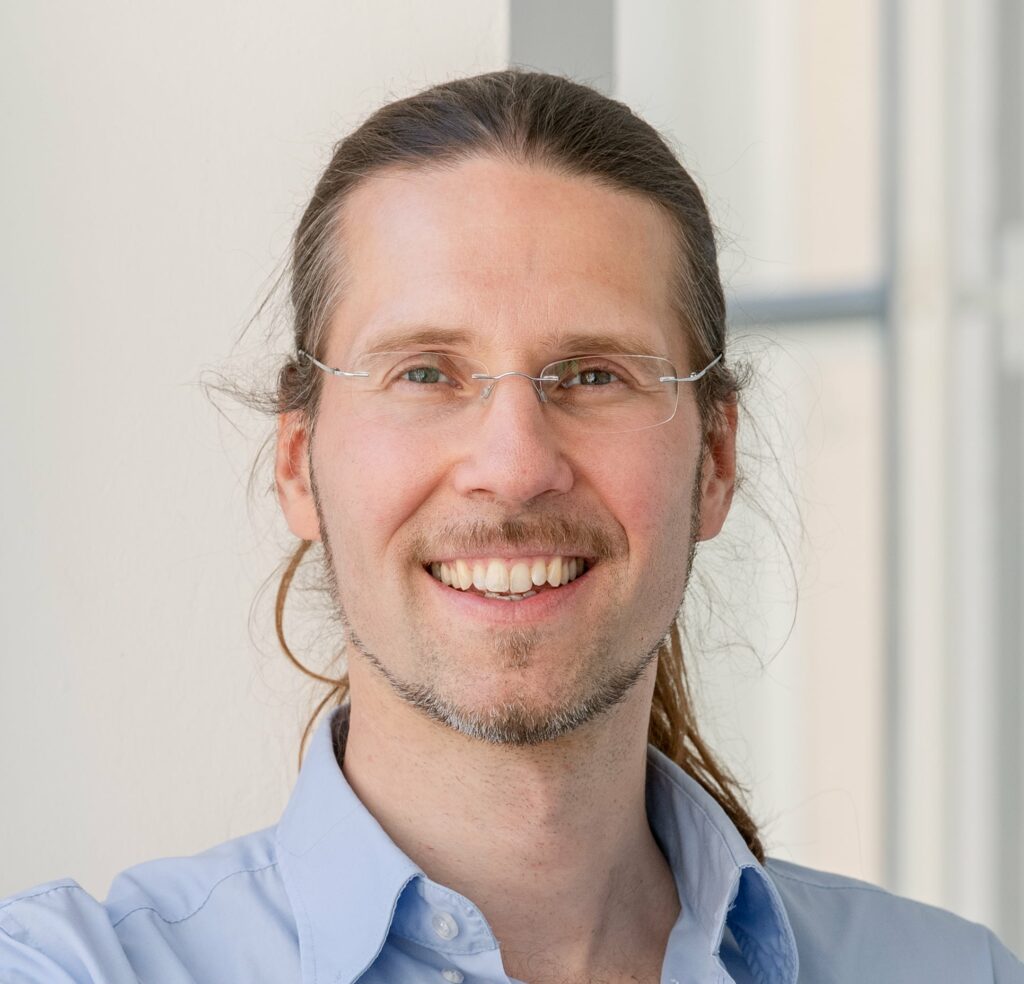
Marc-Oliver Pahl combines technical depth, interdisciplinary insight, and proven leadership to address the critical challenges of modern cybersecurity. His work bridges research, education, industry, and policy
Marc-Oliver Pahl is a Full Professor for Cybersecurity at IMT Atlantique, one of France’s leading Grandes Écoles (elite technical universities), part of the Institut Mines-Télécom. He leads the Cyber CNI Chair, which he developed since 2020 into France’s largest and most recognized industrial cybersecurity research chair. As part of the IMT group, the Chair spans three major national research institutions: X Télécom Paris, X Télécom SudParis, and IMT Atlantique.
Academic Background and Excellence
Marc-Oliver earned his PhD summa cum laude from Technische Universität München (TUM). His research focused on semantic approaches to interoperability and security in distributed, heterogeneous microservice architectures. His academic specialization in computer networks and distributed systems laid a robust technical foundation for his cybersecurity research.
At TUM, Marc-Oliver was widely recognized for both his research and teaching excellence. He received multiple prestigious awards, including the Ernst Otto Fischer Teaching Award (2013), second place in the TUM Cedosia PhD Supervisory Award (2020), and several honors for innovative teaching formats and project-based learning.
He also holds a Diplom degree from Eberhard Karls Universität Tübingen, graduating with the top grade of 1.0. His studies combined technical depth in computer networks, distributed systems, and computer graphics with a minor in media science—an interdisciplinary background that now informs his research into human-centered cybersecurity, such as next-generation user interfaces and work on disinformation and fake news.
Cybersecurity Leadership and Research
Since 2019, Marc-Oliver has focused on building and leading the Cybersecurity for Critical National Infrastructures (Cyber CNI) Chair. The Chair emphasizes interdisciplinary cybersecurity research, with a strong applied focus and close collaboration with industry. Key partners include major French and international organizations such as Airbus Defense and Space (Cyber program, PROTECT), EDF, SNCF, BNP Paribas, Nokia Bell Labs, and COMCYBER, as well as the Pôle d’Excellence Cyber and the Brittany Region, a national hub for cybersecurity in France.
His research takes a holistic, systems-oriented approach to cybersecurity, addressing real-world challenges through:
- Federated AI and swarm learning
- Side-channel anomaly detection (e.g., sound, power)
- Next generation immersive cybersecurity operations interfaces (e.g., VR/AR)
- Generative AI, disinformation, and adversarial resilience
- Collaborative cybersecurity
Strategic Roles and Community Engagement
Marc-Oliver is President of the German Chapter of the ACM and serves on the steering committees of both the German Informatics Society (GI) and the German-French Academy for the Industry of the Future. He is a member of the Administrative Council of the Pôle d’Excellence Cyber (PEC), positioning him at the center of cross-national cybersecurity collaboration and strategy.
He is a multi-award-winning educator and a recognized eLearning pioneer. His large-scale MOOC on computer networks and distributed systems (available on edX and Coursera) features a unique online laboratory and has reached over 10,000 learners worldwide. He also created and scaled one of the largest lab courses in this domain, taught at TU München, Universität Tübingen, University of South Wales, and IMT Atlantique, reaching over 4,000 students.
Marc-Oliver regularly organizes and curates high-impact public outreach and training formats, including:
- TALK.CYBER Speaker Series
- Future-IoT PhD School Series
These events bridge academia, industry, and the public, making advanced cybersecurity topics accessible and actionable.
Funding, Supervision, and Publication Strategy
Marc-Oliver has secured over €5 million in third-party funding from national (BMBF, BMWi), European (Horizon Europe), and industrial sources. He has (co-)supervised over a dozen PhD students and more than 300 Master, Bachelor, and Engineering students, and regularly serves on PhD juries at Europe’s top institutions.
Coming from a distinguished background in network and service management, Marc-Oliver has been actively transitioning into core cybersecurity since 2019. Beyond his own research, he has played a key role in integrating cybersecurity into the network and systems management community, which underpins all modern infrastructures. Through sustained efforts with colleagues, he has been a driving force behind the significant increase in cybersecurity-related publications in flagship venues such as NOMS and CNSM—contributing to the community’s growing recognition of cybersecurity as a central systems concern. This strategic positioning reflects his commitment to applied cybersecurity at the heart of operational infrastructure. In parallel, he is now intensifying his publication efforts toward top-tier, security-focused venues such as NDSS, ESORICS, and IEEE Security & Privacy, aligning both his own trajectory and the Cyber CNI Chair’s visibility with the core of the academic cybersecurity research community.
Broader Research Community Contributions
Marc-Oliver remains a recognized figure in the Network Operations and Management community, co-organizing major events such as:
- Network Operations and Management Symposium (NOMS)
- Conference on Network and Service Management (CNSM)
- Manage-IoT Workshop Series (co-founded in 2018)
He also serves as Associate Editor for both the Springer Journal of Network and Systems Management (JNSM) and the ACM International Journal of Network Management (IJNM).
In addition to his longstanding involvement in the network and systems management community, Marc-Oliver has contributed to expanding the presence of cybersecurity topics in adjacent research venues. He actively supported and promoted cybersecurity-related work in conferences such as the Global Information Infrastructure and Networking Symposium (GIIS), ACM SIGCOMM’s IIoT-NET workshop, Cyber Security in Networking Conference (CSNet), and KES (Knowledge-Based and Intelligent Information & Engineering Systems). While these venues are not central to the core cybersecurity community, his engagement reflects a consistent effort to broaden awareness of applied cybersecurity challenges, particularly in domains closely tied to critical infrastructure and industrial systems.




